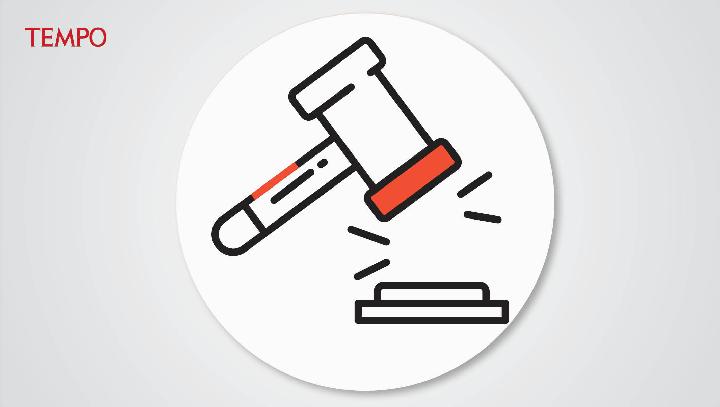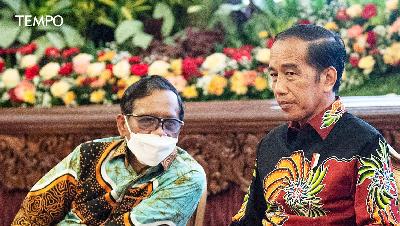The Absurdity of Law Enforcement in Sidoarjo
In the corruption case in Sidoarjo, the KPK gives the impression of having become a political tool. A thorough investigation is needed to remove this impression.
Tempo
February 5, 2024

IN the corruption case in Sidoarjo Regency, East Java, we can see an absurd legal practice. The Corruption Eradication Commission (KPK) has increasingly lost its way. The institution established as a result of the 1998 Reformasi movement even gives the impression of having become a hired thug as part of the efforts to ensure victory in the presidential election.
A symbol of this absurdity is Regent Ahmad Muhdlor Ali. He is accused of involvement in the deductions from staff incentives involving some of his subordinates in the Sidoarjo local government. The anti-graft commission detained 11 provincial civil servants and private employees. But in a change from the standard procedure, the commission only named a suspect four days after the arrests. She is Siska Wati, Head of the General and Employee Affairs Subsection of the Sidoarjo Regional Tax Services Agency (BPPD).
The KPK believes that Muhdlor received payments through a trusted aide. The funds were collected by Siska during 2023 from levies of between 10 and 30 percent from incentive payments at the BPPD. They totaled Rp2.7 billion. Despite this, the KPK has yet to name the National Awakening Party (PKB) politician as a suspect. Commission officials have only searched his official residence. The current whereabouts of the occupants of the house are reportedly unknown.
One day before the search, Muhdlor made an appearance at a mass campaign event in support of Prabowo Subianto and Gibran Rakabuming Raka. He led a prayer service—offering prayers for the Prophet Muhammad—while making a speech asking for support for the candidate pairing openly supported by President Joko Widodo. The political stance of the regent was different from that of his own party, the PKB, which is supporting the Anies Rasyid Baswedan-Muhaimin Iskandar pairing.
Therefore, it is unsurprising that people have concluded that Muhdlor is hiding behind the Prabowo-Gibran coalition, especially since reports emerged that some of the party leadership was forced to join the coalition or face possible criminal charges. With support from the regime as well as most of its employees, many predict that this pairing will go on to win the election.
It is as if the KPK has become a tool to put pressure on anyone seen as disrupting this effort to bring about a victory. East Java Province, including Sidoarjo with its 1.4 million voters, is a region where all the presidential candidates are fighting to win votes. It is not a coincidence that Regent Muhdlor comes from family owning Islamic boarding schools that have considerable influence in the region.
The impression that the KPK has become merely a political tool will be reinforced if the commission then hands this case over to the police. With this type of ‘law enforcement’ model—using quotation marks because what is actually happening is a weakening of the law—there is little hope that the people will end up with a government that is free from corruption. Indonesia’s corruption ranking is currently in freefall, and now standing at 115 out of the 180 nations surveyed by Transparency International.



